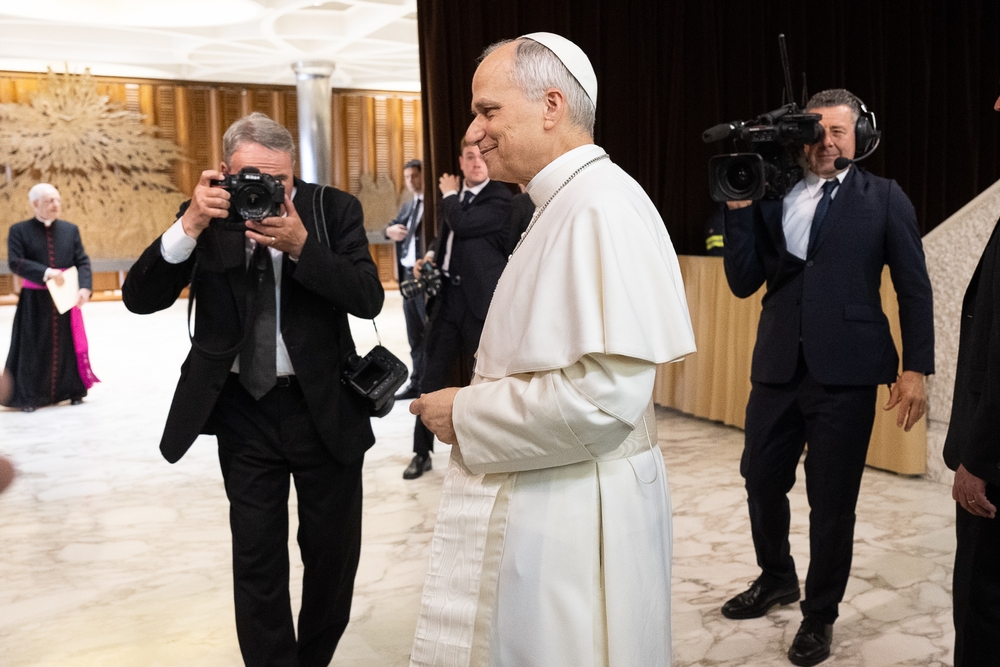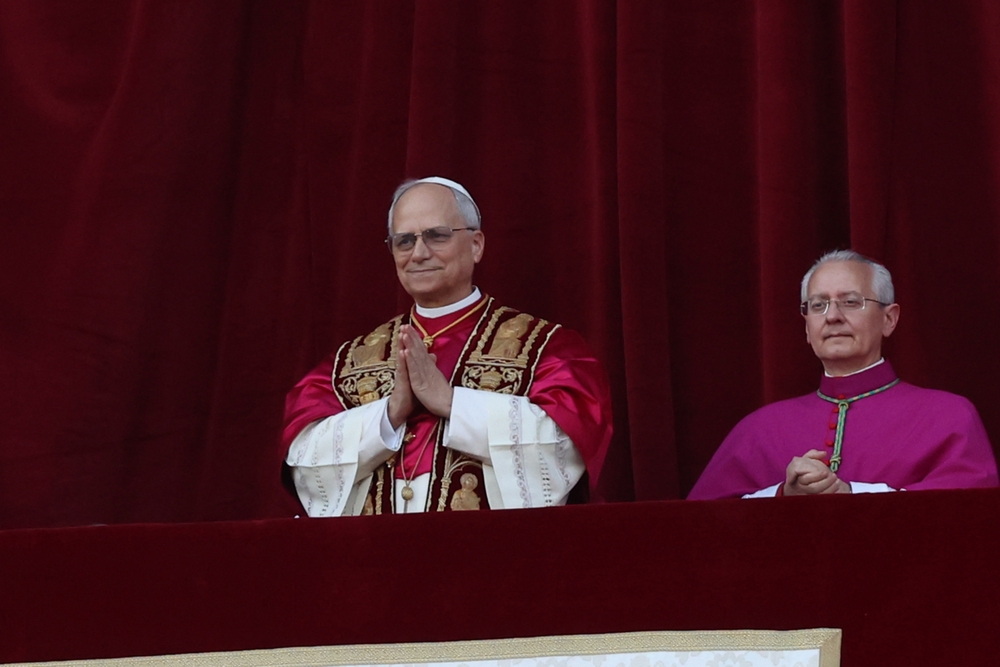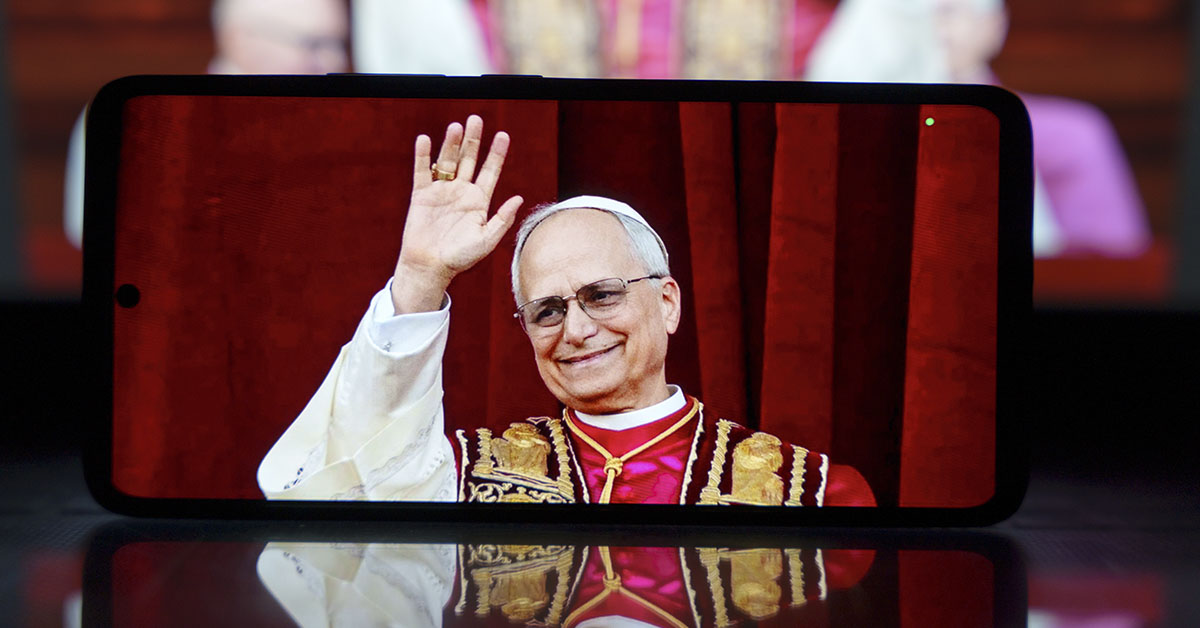On May 8, 2025, history turned a page as Cardinal Robert Francis Prevost was elected to the papacy, becoming Pope Leo XIV, the first American ever to lead the Roman Catholic Church. His appointment immediately captured the world’s attention. The Pope’s message to America was eagerly anticipated by many. However, it wasn’t just the historic nature of his rise that stirred headlines, it was his cryptic response during his very first public address.
Just days after his election, during an appearance at the Vatican, a reporter asked the new pontiff if he had a message for the United States. Pope Leo XIV paused, smiled slightly, and responded with a single word: “Many.” He then added, “God bless you all.” That one-word reply quickly went viral. Though brief, it resonated loudly across religious, political, and cultural lines.
Interpreting His Reply
The simplicity of the word “Many” sparked a firestorm of interpretation. Was the Pope suggesting that the U.S. has many blessings? Or was it a quiet reference to many problems that need attention? Some even argued that the Pope had deliberately left the message open-ended, encouraging introspection rather than offering a concrete opinion.
Social media platforms exploded with theories. One widely shared comment called it “the most chilling thing a Pope has ever said.” Others took a more optimistic view, suggesting it was a gentle nod to the United States’ complex identity, full of contradictions, hopes, and responsibilities. Regardless of the interpretation, the Pope’s message to America became a cultural talking point, showing how even a single word can command attention in a world often saturated with noise.
Read More: Some Catholics Fear Pope Leo Could Bring ‘Woke Revolution’ to the Vatican
A Papacy Rooted in Bold Expression
This wasn’t Pope Leo XIV’s first brush with political nuance. As Cardinal Prevost, he regularly voiced strong opinions on hot-button issues. He publicly opposed former President Donald Trump’s immigration policies and frequently critiqued public figures like Senator JD Vance for what he considered to be misleading representations of Christian doctrine.
Yet in a moment of irony, both Trump and Vance offered public congratulations after the Pope’s election. Trump called it a proud moment for the United States, while Vance framed it as a blessing for American Catholics. These reactions, however, stood in contrast to the Pope’s prior critiques, suggesting a relationship built more on diplomatic courtesy than alignment of values.
His word choice, “Many”, may reflect this dynamic. Rather than confrontational language, he offered subtlety. In doing so, Pope Leo XIV’s message to America came across as simultaneously gracious and thought-provoking.

A Name with a Mission
Choosing the name Leo XIV wasn’t arbitrary. Pope Leo XIII, who held the office from 1878 to 1903, was known as the “Pope of the Workers.” He strongly advocated for labor rights, economic justice, and the dignity of the working class. His efforts expanded the Church’s role in addressing social and economic inequalities.
By aligning himself with this legacy, Pope Leo XIV signaled where he might lead. Like his predecessor, he seems inclined to focus on issues such as wealth disparity, immigration, and labor justice, topics that intersect deeply with the American political and social landscape. So, when considering the Pope’s message to America, that one word “Many”, may be the start of a broader agenda aimed at moral and systemic reform.
Why One Word Worked
In an era dominated by constant media chatter and political overexplanation, Pope Leo XIV’s minimalist approach cut through the noise. Rather than deliver a sermon or long-winded response, he chose mystery. That decision invited the world to slow down, consider context, and search for meaning.

This strategy isn’t new for the Catholic Church, but it feels especially relevant today. The Pope’s decision to speak little but say much positions him as a leader who values reflection over reaction. That’s rare, and perhaps precisely what many feel is missing from modern leadership.
As discussions continue, one thing is clear: the Pope’s message to America has made an impact far beyond what anyone expected from a single word.
Many Thoughts, One Clear Message
Pope Leo XIV may have said little, but he achieved much. His message was not vague out of carelessness, but intentional in its ambiguity. It forced America and the world to pause, reflect, and ask difficult questions. What are the “many” things he had in mind? Challenges? Hopes? Warnings? Or all of the above?
Regardless of the answer, the Pope’s message to America will continue to echo. It reflects not just a papal perspective, but a call to national self-examination. And in doing so, it sets the tone for what could be a transformative papacy, one that uses few words but demands deep thought.
As the world continues to reflect on the Pope’s message to America, many wonder if Pope Leo XIV will eventually expand on his cryptic reply. With upcoming addresses, international visits, and papal writings on the horizon, he will have ample opportunity to clarify the meaning behind “Many.”
Whether he chooses to elaborate or lets the mystery linger, one thing is certain: the world will be listening closely. His next words could either complete the message or remind us that sometimes, silence speaks loudest.
Read More: Breaking Down the New Pope’s Salary: It’s Not What You Think

